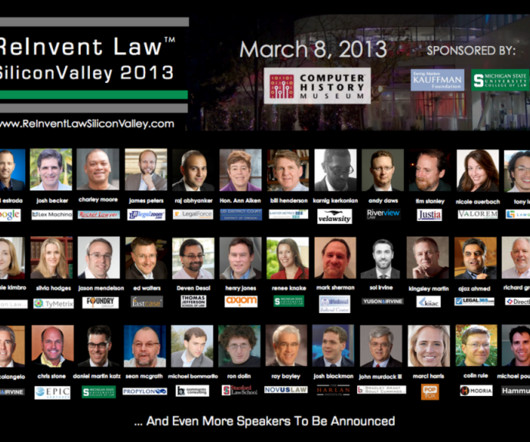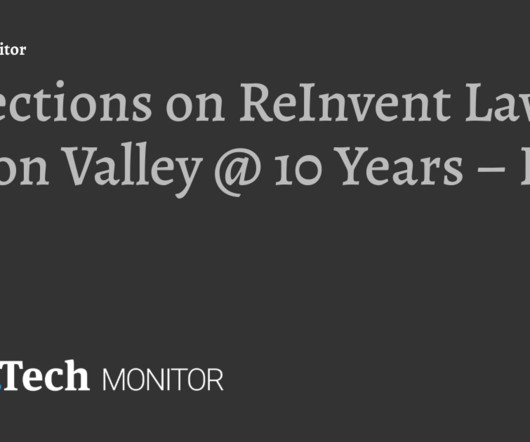Reflections on ReInvent Law Silicon Valley @ 10 Years – Part 3
LawSites
MARCH 10, 2023
on March 8, 2013, and what it meant to the authors and to the broader movement for innovation in law. Watching the 2013 presentations about disruption of legal services might not be very shocking, because the format, the presentation, and the topics have become so widely adopted that they seem like they have always been around.











Let's personalize your content